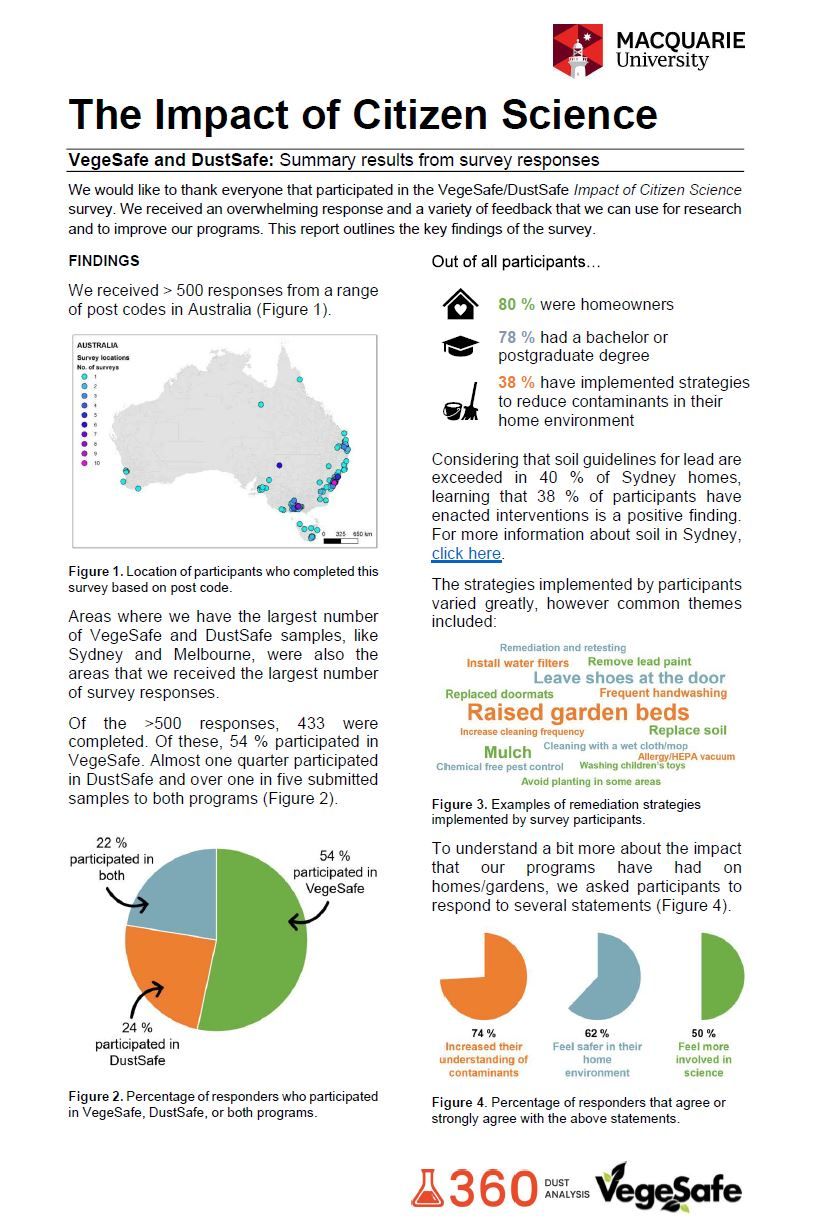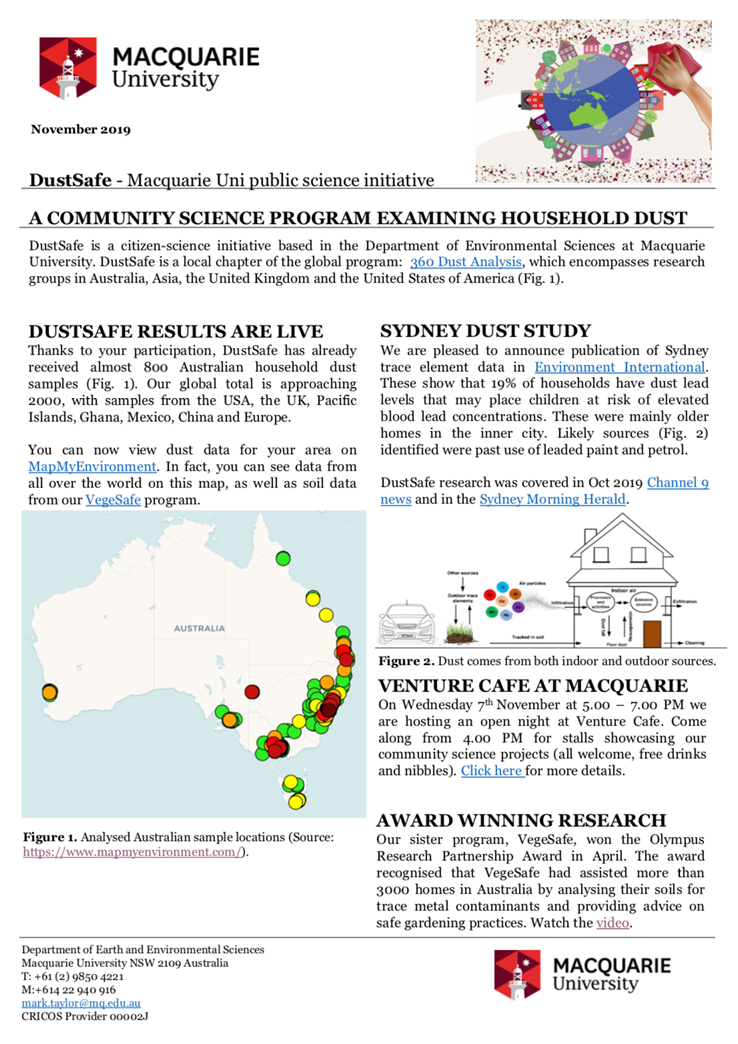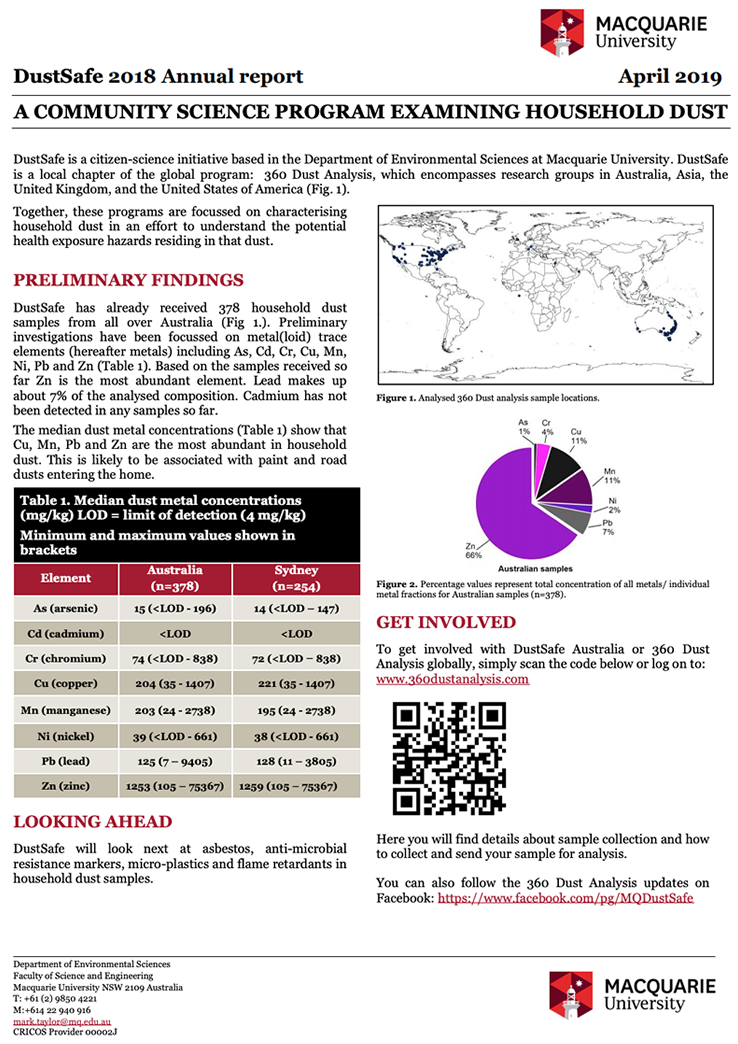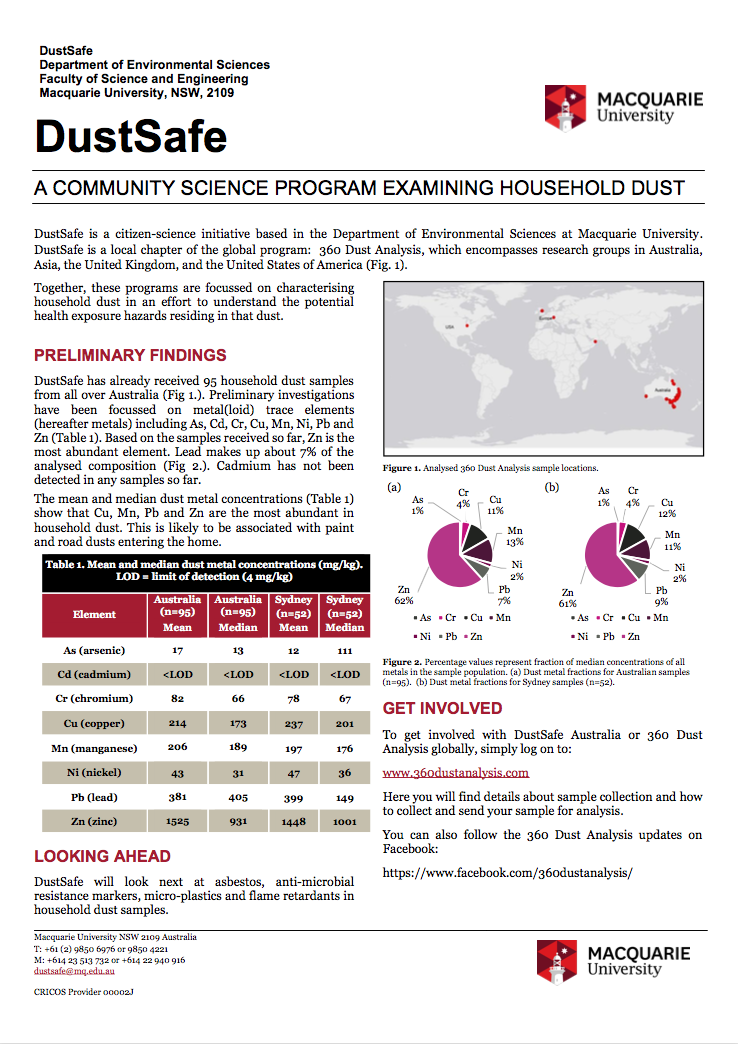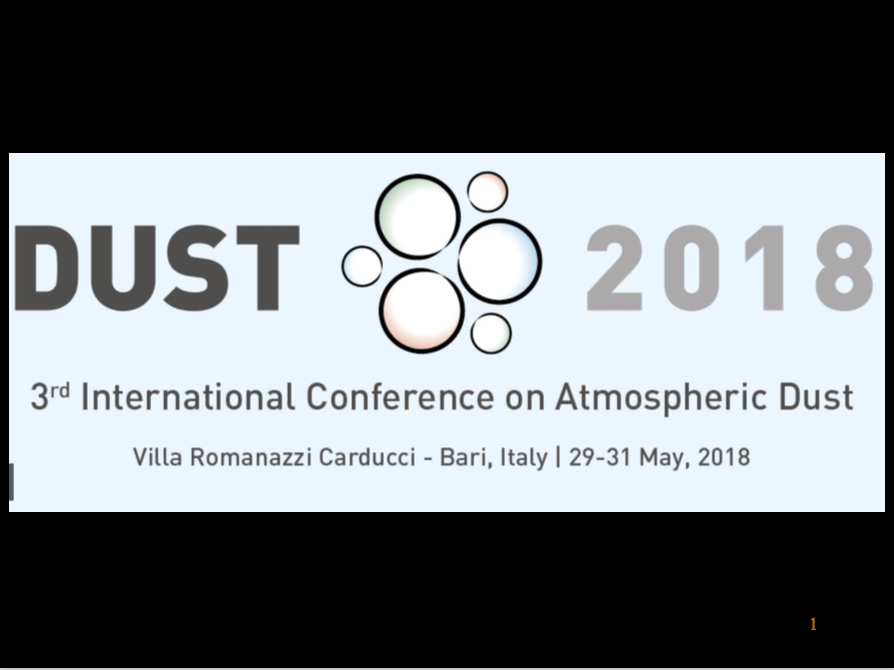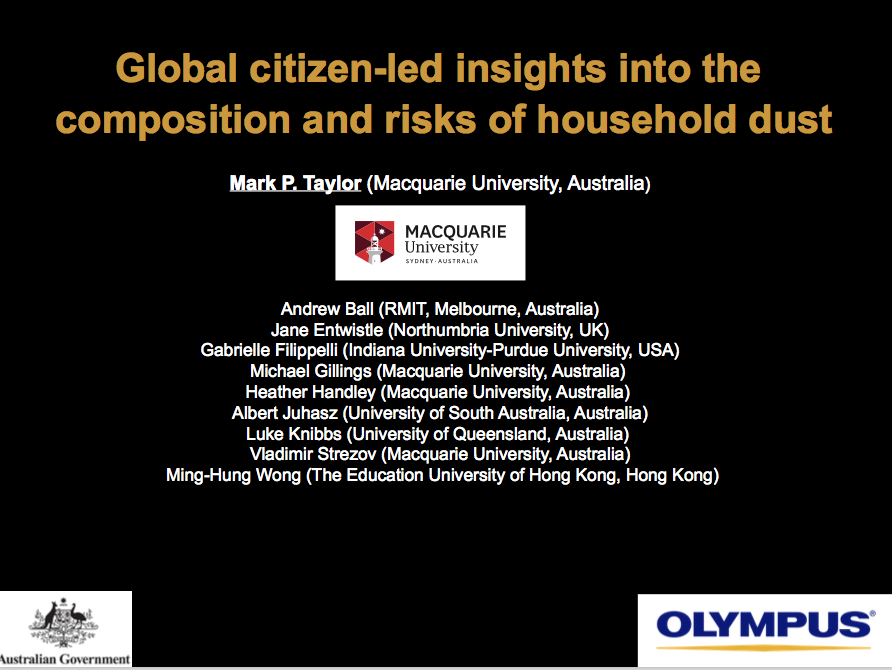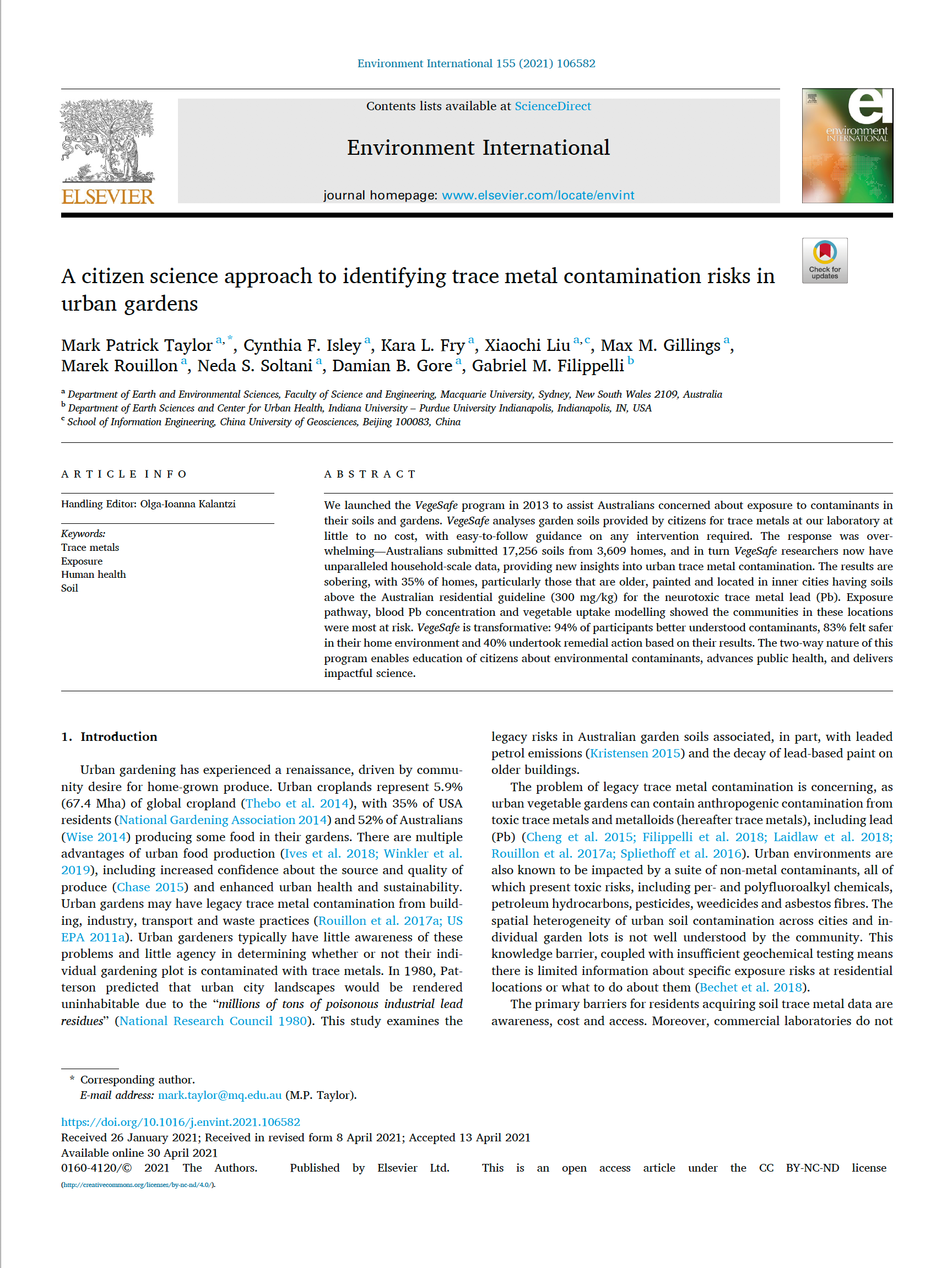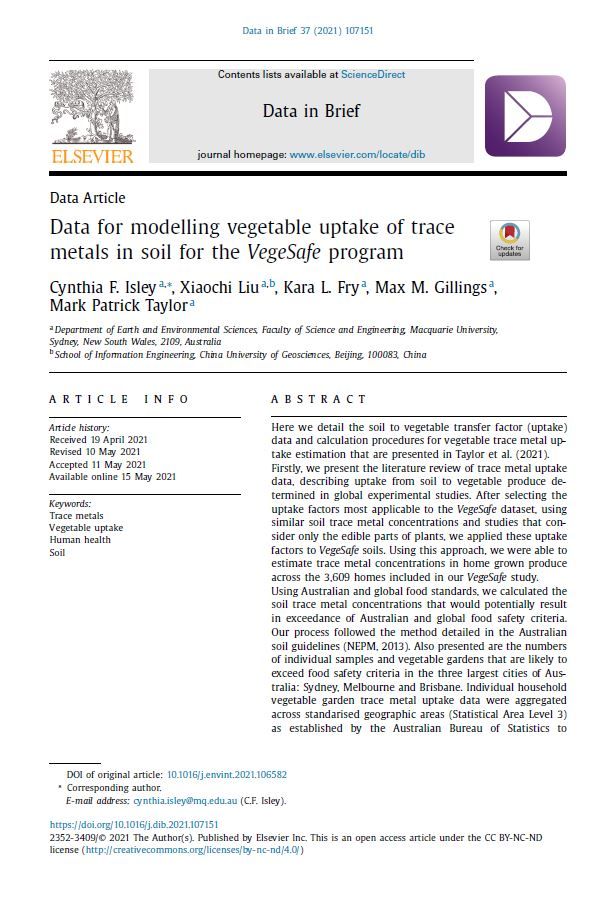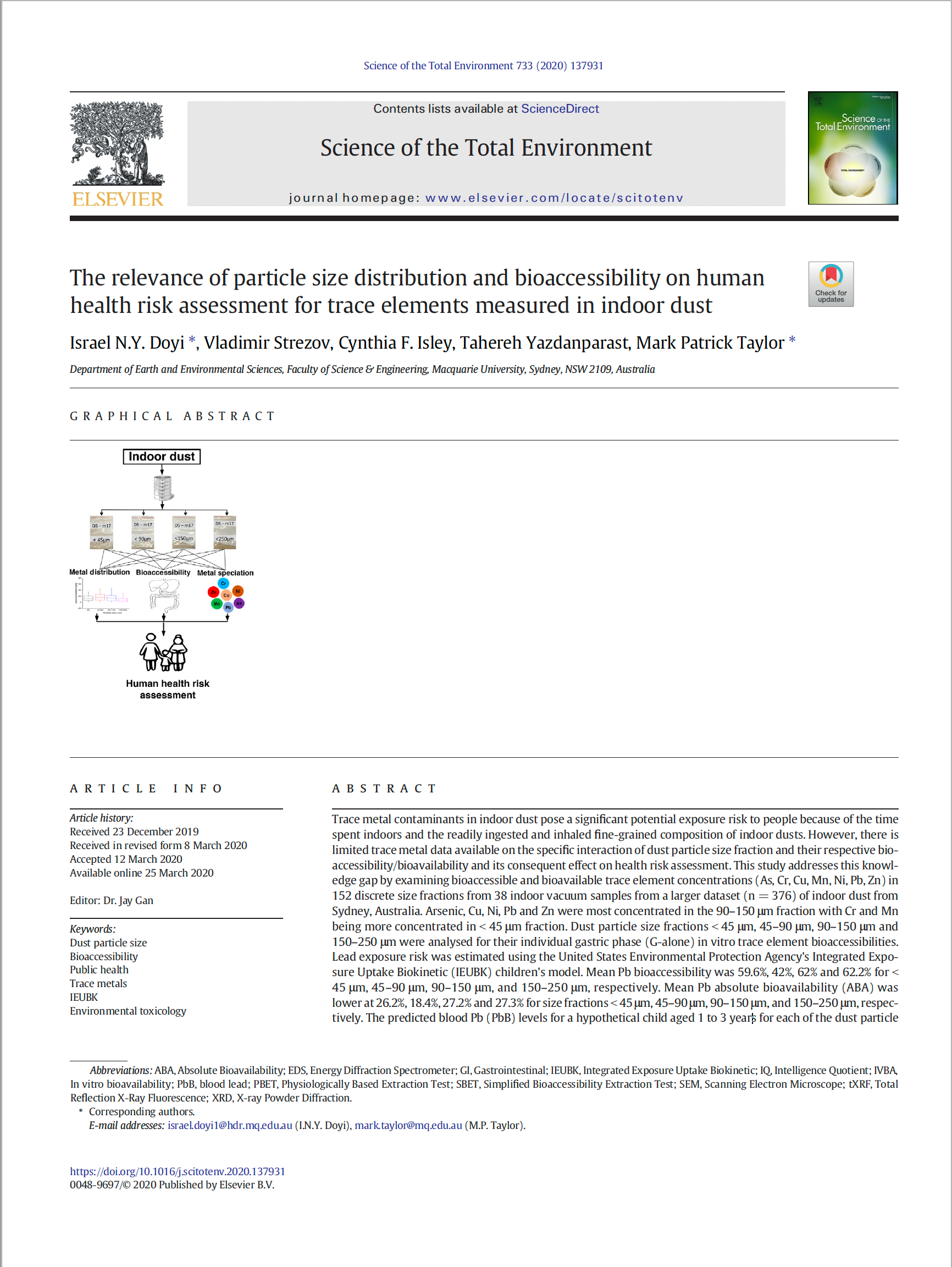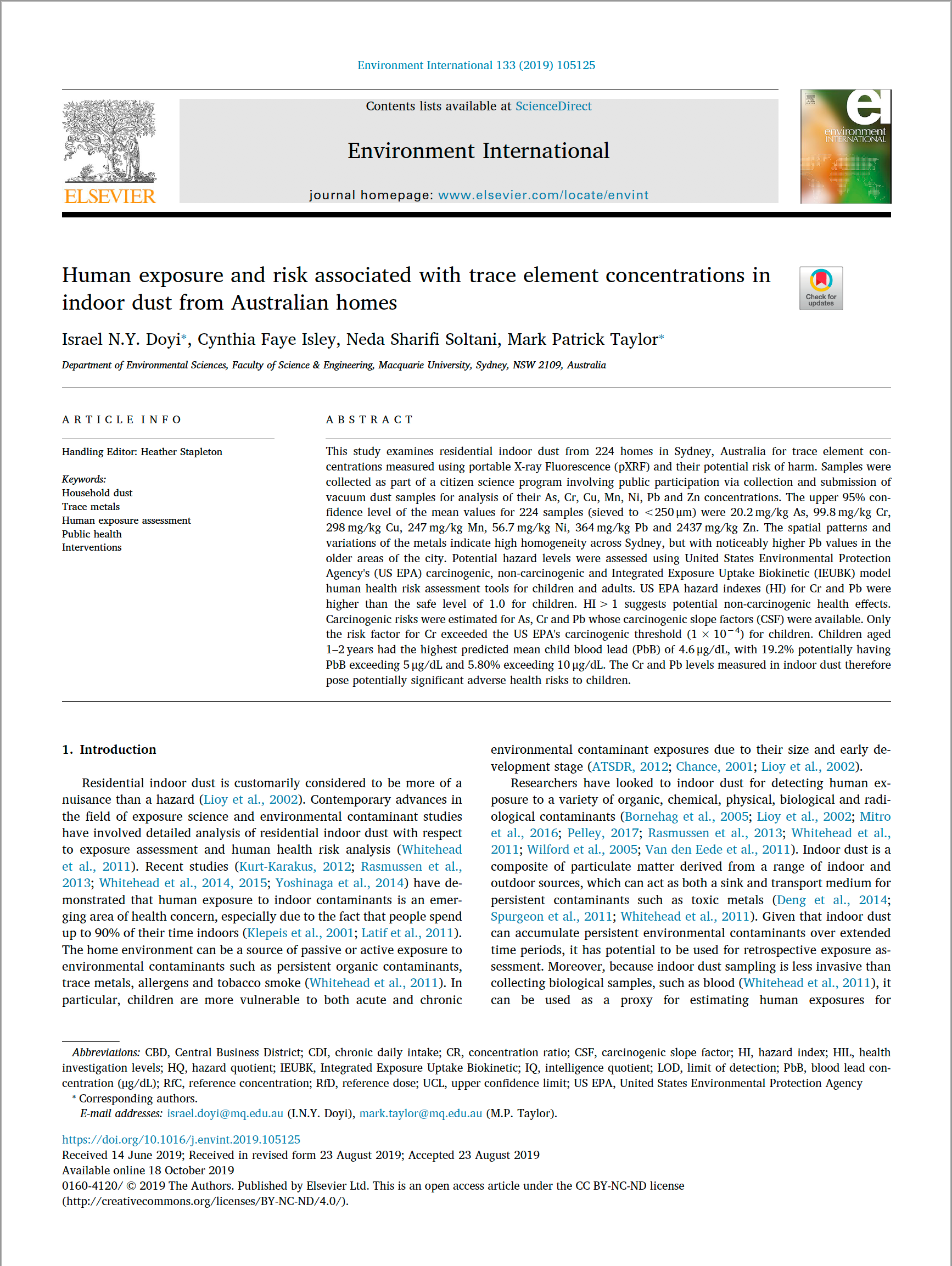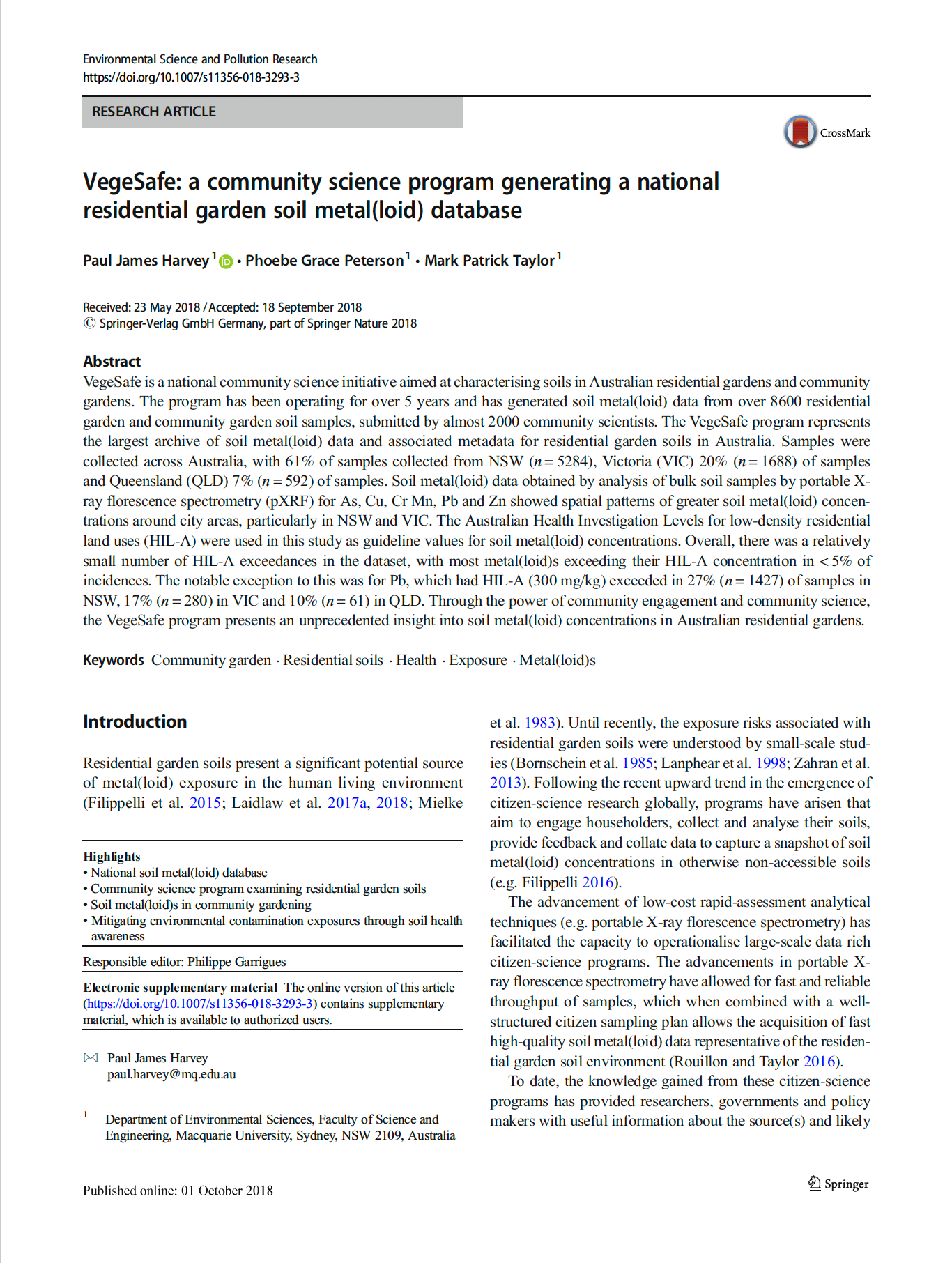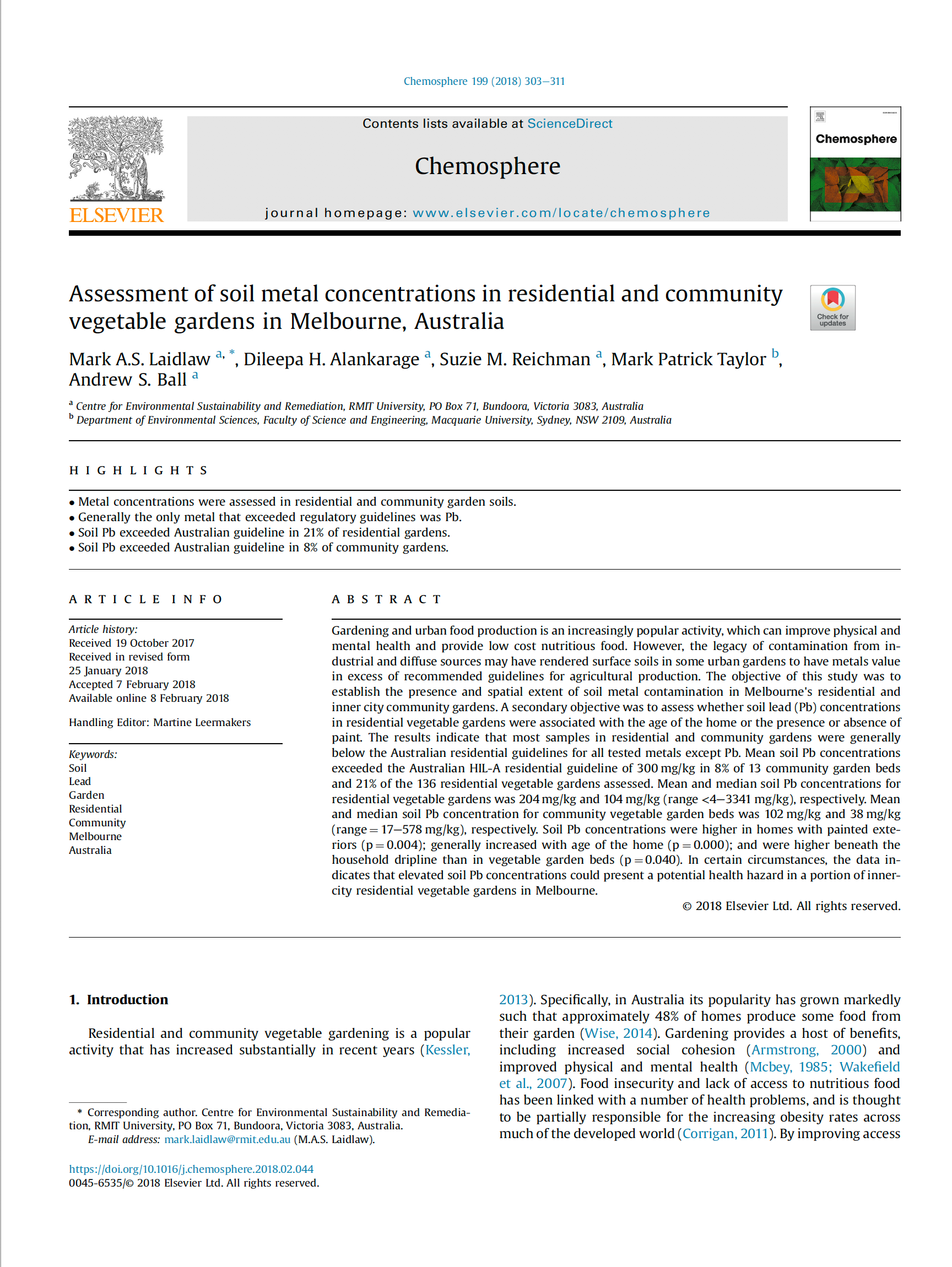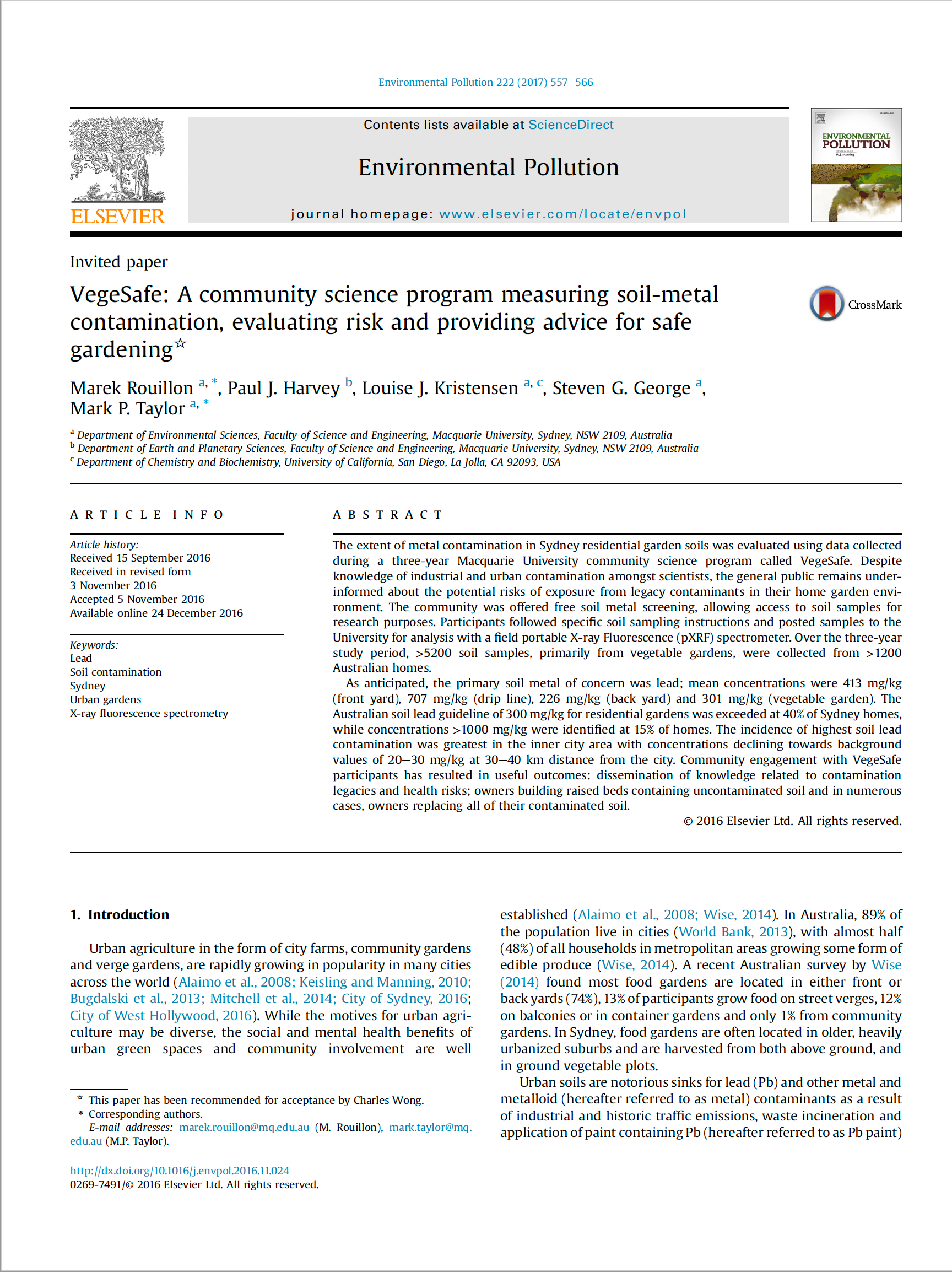Our publications
Reports and presentations about 360 Dust Analysis
Reports
The impact of citizen science
Analysis of findings of participants in the VegeSafe and DustSafe programs
Presentations
Global citizen-led insights into the composition and risks of household dust
Presentation given by Professor Mark Patrick Taylor relating to the DustSafe program, specifically addressing global citizen-led insights into the composition and risks of household dust.
Peer reviewed literature
A citizen science approach to identifying trace metal contamination risks in urban gardens
Mark Patrick Taylor, Cynthia F.Isley, Kara L. Fry, Xiaochi Liu, Max M. Gillings, Marek Rouillon, Neda S. Soltani, Damian B. Gore, Gabriel M. Filippelli.
We launched the VegeSafe program in 2013 to assist Australians concerned about exposure to contaminants in their soils and gardens. VegeSafe analyses garden soils provided by citizens for trace metals at our laboratory at little to no cost, with easy-to-follow guidance on any intervention required. The response was overwhelming—Australians submitted 17,256 soils from 3,609 homes, and in turn VegeSafe researchers now have unparalleled household-scale data, providing new insights into urban trace … [read more]
Data for modelling vegetable uptake of trace metals in soil for the VegeSafe program
Cynthia F. Isley, Xiaochi Liu, Kara L. Fry, Max M. Gillings, Mark Patrick Taylor.
Here we detail the soil to vegetable transfer factor (uptake) data and calculation procedures for vegetable trace metal uptake estimation that are presented in Taylor et al. (2021). Firstly, we present the literature review of trace metal uptake data, describing uptake from soil to vegetable produce determined in global experimental studies. After selecting the uptake factors most applicable to the VegeSafe dataset, using similar soil trace metal concentrations and studies that consider only th… [read more]
The relevance of particle size distribution and bioaccessibility on human health risk assessment for trace elements measured in indoor dust
Israel N.Y.Doyi, Vladimir Strezov, Cynthia F.Isley, Tahereh Yazdanparast, Mark PatrickTaylor.
Trace metal contaminants in indoor dust pose a significant potential exposure risk to people because of the time spent indoors and the readily ingested and inhaled fine-grained composition of indoor dusts. However, there is limited trace metal data available on the specific interaction of dust particle size fraction and their respective bioaccessibility/bioavailability and its consequent effect on health risk assessment. This study addresses this knowledge gap by examining bioaccessible and bioa… [read more]
Human exposure and risk associated with trace element concentrations in indoor dust from Australian homes
Israel N.Y.Doyi, Cynthia Faye Isley, Neda Sharifi Soltani, Mark Patrick Taylor.
This study examines residential indoor dust from 224 homes in Sydney, Australia for trace element concentrations measured using portable X-ray Fluorescence (pXRF) and their potential risk of harm. Samples were collected as part of a citizen science program involving public participation via collection and submission of vacuum dust samples for analysis of their As, Cr, Cu, Mn, Ni, Pb and Zn concentrations. The upper 95% confidence level of the mean values for 224 samples (sieved to <250 μm) were … [read more]
VegeSafe: a community science program generating a national residential garden soil metal(loid) database
Paul J.Harvey, Phoebe G.Peterson, Mark Patrick Taylor.
VegeSafe is a national community science initiative aimed at characterising soils in Australian residential gardens and community gardens. The program has been operating for over 5 years and has generated soil metal(loid) data from over 8600 residential garden and community garden soil samples, submitted by almost 2000 community scientists. The VegeSafe program represents the largest archive of soil metal(loid) data and associated metadata for residential garden soils in Australia. Samples were … [read more]
Assessment of soil metal concentrations in residential and community vegetable gardens in Melbourne, Australia
Mark A.S. Laidlaw, Dileepa H.Alankarage, Suzie M.Reichman, Mark Patrick Taylor, Andrew S.Ball.
Gardening and urban food production is an increasingly popular activity, which can improve physical and mental health and provide low cost nutritious food. However, the legacy of contamination from industrial and diffuse sources may have rendered surface soils in some urban gardens to have metals value in excess of recommended guidelines for agricultural production. The objective of this study was to establish the presence and spatial extent of soil metal contamination in Melbourne's residential… [read more]
VegeSafe: A community science program measuring soil-metal contamination, evaluating risk and providing advice for safe gardening
Marek Rouillon, Paul J.Harvey, Louise J.Kristensen, Steven G.George, Mark P.Taylor.
The extent of metal contamination in Sydney residential garden soils was evaluated using data collected during a three-year Macquarie University community science program called VegeSafe. Despite knowledge of industrial and urban contamination amongst scientists, the general public remains under-informed about the potential risks of exposure from legacy contaminants in their home garden environment. The community was offered free soil metal screening, allowing access to soil samples for research… [read more]




ABOUT US
The 360 Dust Analysis program is a global research initiative to collect and analyse data on contaminants of concern that may be harmful to human health in homes and gardens..
CONTACT US
dustsafe@mq.edu.au
gardensafe@epa.vic.gov.au
ee.dustsafe@northumbria.ac.uk
LOCATIONS
Macquarie University, NSW, Australia.
Environment Protection Authority, VIC, Australia.
Northumbria University, Newcastle, United Kingdom.
IUPUI, Indianapolis, United States.
